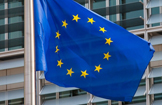
Towards a European duty of vigilance?
"I want to propose a new generational pact for tomorrow. The effects of the crisis mean that we will have to invest on an unprecedented scale, but we will ensure that the next European generation benefits from it. This is a great opportunity for Europe. It is time to add the chapter written by our generation for a sustainable Union. We owe it to future generations."
It was in these terms that Ursula von der Leyen presented to the European Parliament on 27 May the 750 billion euro recovery plan called "Next Generation EU".


CSR and environment at the heart of tomorrow's European policies?
Ursula von der Leyen had already placed the fight against global warming at the heart of the objectives of her mandate by announcing in December 2019 the "EU Green Deal", aiming to make the European Union the first carbon neutral economy by 2050 at the latest. As part of this Green Deal, it has notably committed to deploying a large-scale "fair transition mechanism" (in principle, 100 billion euros should be devoted to it between 2021 and 2027) aimed at supporting the transition of the European regions most dependent on fossil fuels to a less carbon-based economy.
The European recovery plan announced to address the economic crisis resulting from Covid-19 gives a new impulse to the European ecological transition objective. Many priority investments are thus desired by the Commission, including major renewable energy projects, such as the launch of a clean hydrogen economy in Europe, or the massive renovation of buildings and infrastructure.
The multiplication of private CSR initiatives:
These ecological and ethical concerns are also experiencing a major boom among private economic players. The following initiatives can be cited as examples:
163 major multinational company CEOs have recently joined forces to call for a post-Covid-19 zero-carbon recovery. Many of these companies have themselves already begun work to aim for the 1.5°C trajectory, under the leadership of the Science Based Targets Initiative (SBTi). They are calling for public decisions to be made in line with these initiatives.
In the same momentum reinforced by the coronavirus epidemic, Danone announced its intention to become the first publicly-traded "mission-oriented company". Many CAC40 companies have already adopted a "raison d'être", sometimes going so far as to include it in their statutes. However, none of them had gone so far as to adopt the status of "mission-oriented company" created by the Pacte law. This approach is very committing for the company, which must therefore integrate social and environmental objectives into its articles of association and devote dedicated resources, including financial resources, as well as specific monitoring and control.
The French universities, such as ESCP Europe, Sciences Po, Essec and Dauphine, which train the managers of tomorrow's economy, are also committed to the fight against climate change. At the end of April, several professors from these schools launched a "call for management teachers in the grandes écoles and universities involved in sustainable development".
Legal initiatives are also multiplying to accelerate the ecological transition. Thus, in the summer of 2019, three NGOs initiated the "Case of the Century": an unprecedented legal recourse against the French State for inaction on climate change.
France has adopted legal tools to support its ambition for a sustainable and ethical transition:
Despite the existence of legal actions such as the "Affair of the Century", France is nevertheless one of the countries with the best legal tools to promote this change.
Law n°2017-399 of March 27, 2017 relating to the duty of vigilance of parent companies and ordering companies, also known as the "Loi Potier", requires large French ordering companies to prevent social, environmental, safety and health risks as well as human rights violations related to their operations, those of their subsidiaries, subcontractors and suppliers. It was unique in the world when it was adopted.
It should be recalled that this ambitious law, because of its broad scope, has high application thresholds: a company is subject to this law if it employs, at the close of two consecutive financial years, at least 5,000 employees in the company and in its direct or indirect subsidiaries whose head office is located in France, or at least 10,000 employees in the company and in its direct or indirect subsidiaries whose head office is located in France or abroad.
Since then, other countries have introduced initiatives to adopt laws inspired by the same objective, such as Germany, where Angela Merkel's government has announced that it is considering the adoption of such a law. The United Kingdom and Australia have also enacted Modern Slavery Acts in 2015 (1) and 2018 (2) respectively. However, these Anglo-Saxon laws appear to be less demanding than the French Vigilance Act.
In addition, numerous civil society initiatives have been advocating for several months now for supra-State legislation to be adopted to force multinationals at the international level to ensure respect for human rights and environmental protection. This is the case, for example, of the "Collectif Ethique sur l'Etiquette", which a few weeks ago called for the elaboration of an "international duty of vigilance" through the adoption of a European directive.
A "European duty of vigilance" should emerge in the coming months
Such a European project could indeed be launched in the coming months.
Indeed, on 20 February this year, the European Commission published a study on respect for human rights in the supply chain (3). This study shows that only one company out of three in the European Union currently demonstrates "due diligence" with regard to the respect of human rights and the impact on the environment. Furthermore, 70% of the 334 European companies surveyed consider that companies would benefit from the adoption of an EU-wide regulation imposing a general duty of due diligence on human rights and environmental impact.
On 29 April, European Commissioner for Justice Didier Reynders promised an EU legislative initiative by 2021 to oblige European companies to monitor human rights and environmental abuses in their supply chains. This initiative should be presented in the framework of the Commission's 2021 work plan and the European Green Deal. The announcement was made during a European Parliament webinar in April, at a time when all European countries were in the heart of the Covid-19 crisis.
The current coronavirus pandemic therefore does not seem to have put a stop to this draft European legislation, which is to be welcomed. Indeed, the current crisis can only reinforce the need to establish supra-state obligations for multinationals in terms of respect for human rights and environmental impact.
Didier Reynders announced that a public consultation would be launched in the coming weeks on this future European "due diligence obligation", before presenting the new legislation in the first quarter of 2021.
The Commissioner also announced that this new regulation should be modelled on the French law on the duty of vigilance.
We can therefore bet that our French law on the duty of vigilance should become a source of inspiration for Europe and perhaps lead to the imposition of European vigilance plans and better security of responsible supply chains at EU level. To those who might think that such legislation is too ambitious and that the economic crisis we are experiencing cannot allow such measures to be adopted, we would remind you of the appeal made by Ursual Von der Leyen in his speech of 27 May:
"For Europe, the most audacious measures will always be the safest ... We are at a moment that will define us. These subsidies are a joint investment in our future, investments in our priorities - digitisation, green deal, resilient societies and environmental protection. To those who are afraid to invest, I want to say that it will cost us even more if we do not act now. Let us abandon old prejudices and regain the strength that underpins the idea of a common Europe".
It is up to all of us to be convinced of this.
To connect:
1 - http://www.legislation.gov.uk/ukpga/2015/30/contents/enacted



